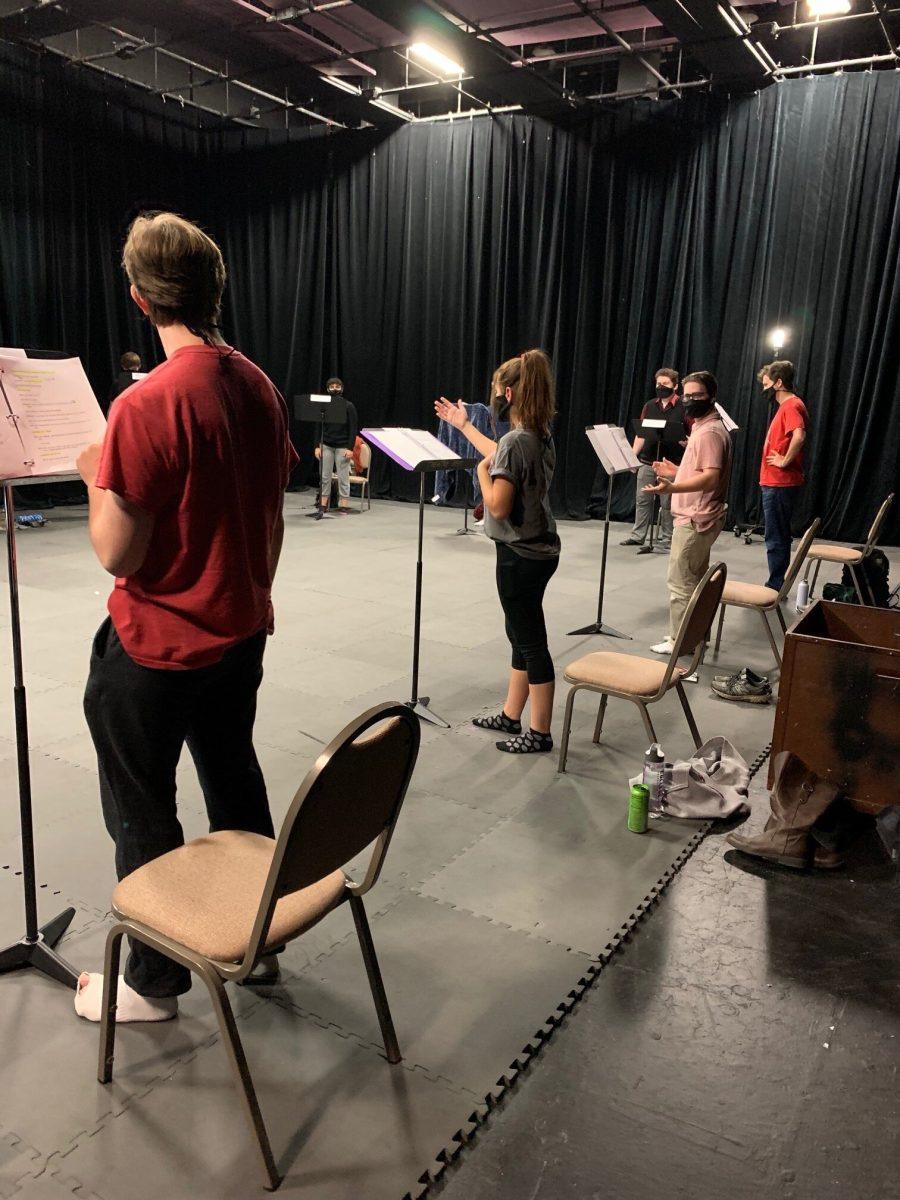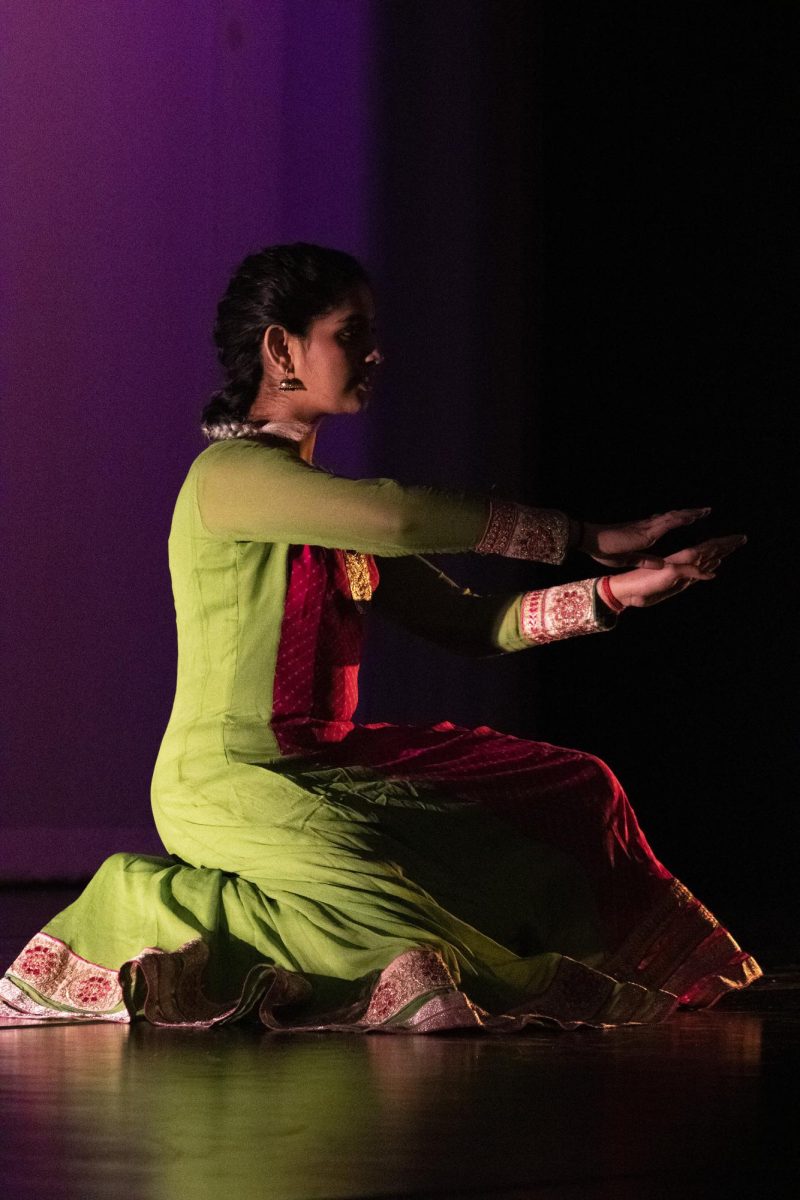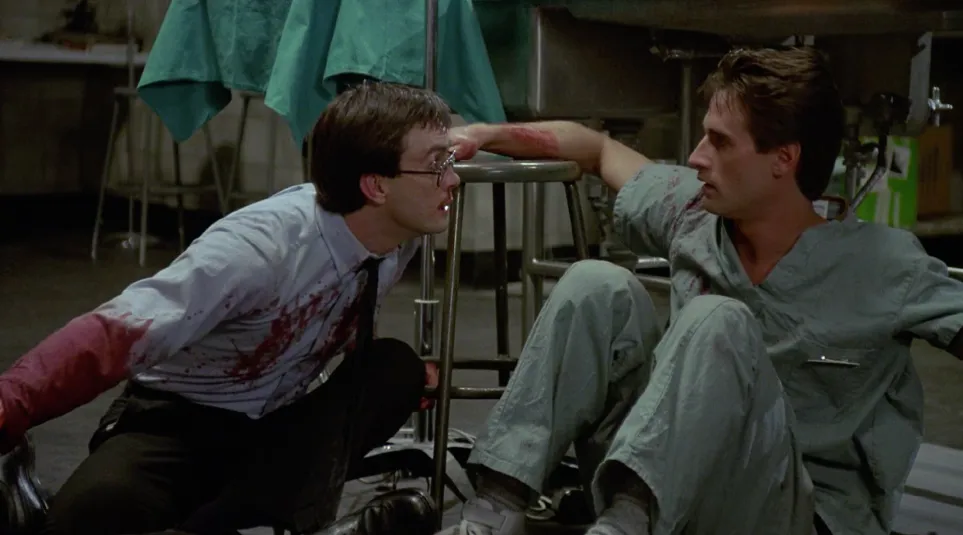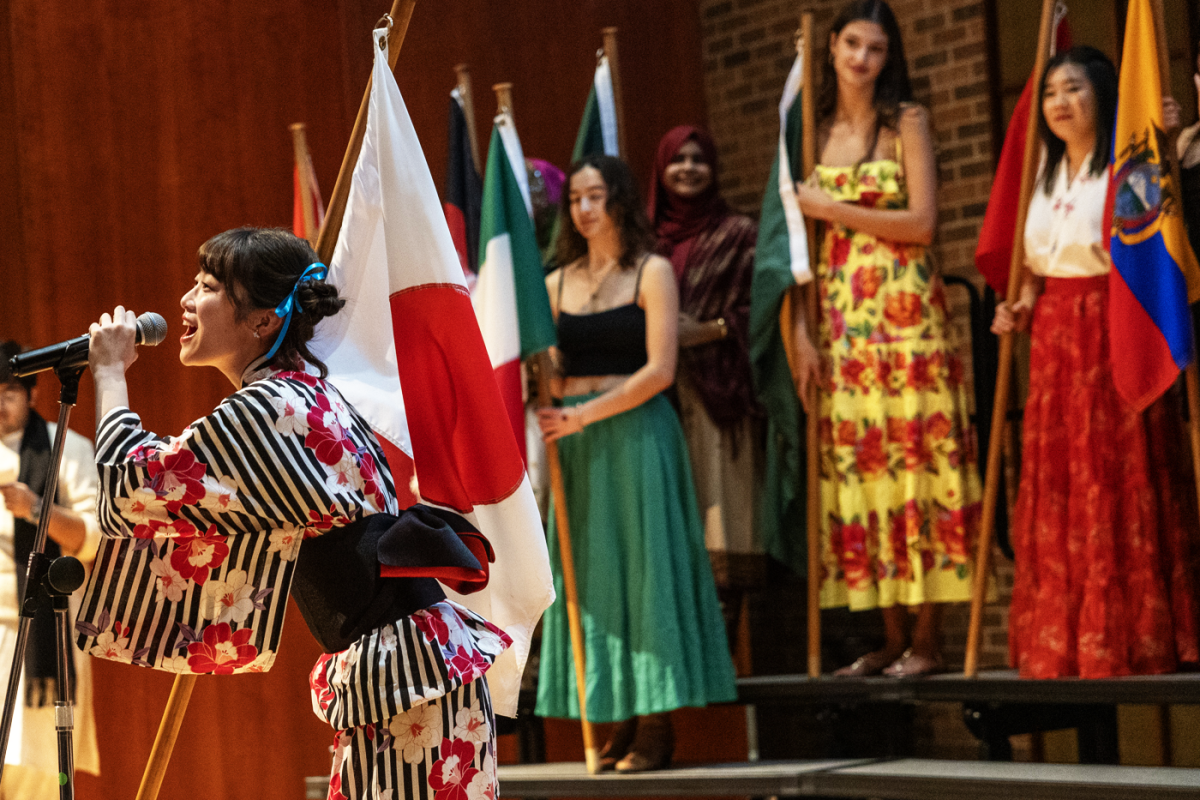A closer look at Knox Theatre’s fall mainstage play, which aired on the radio this weekend.
Usually a stage manager takes notes on an actor’s blocking, keeps track of props and organizes scene changes, among many other tasks. But this did not happen during the Knox Theatre Department’s production of Dracula! The Radio Play.
Instead, assistant stage manager Dana Cooper, a freshman, and stage manager Elise Hanson, a junior, monitored line delivery, dialect delivery and intonation to assist actors’ vocal performances in the fall term production.
“They were listening assiduously,” said Liz Carlin Metz, theatre professor at Knox and director of the show, of the work of Cooper and Hanson.
Dracula! The Radio Play aired over Halloween weekend on 93.7 FM, 90.7 FM and Knox’s student-run radio station, the WVKC.
“I hope that this isn’t the last radio play we do, I hope it wasn’t just the pandemic,” Carlin Metz said. “I hope a door has opened, and we begin at Knox to think of adding radioplays to our repertoire on a more regular basis.”
The radio play medium opened up many educational opportunities for the show’s participants, creating challenges and teaching moments in turn.
“No one knew what to do for auditions, no one knew how to act. It’s crazy. Whole new ground,” said senior John Harden of his experience voice acting for the first time.
Harden played Dr. Jack Seward, a minor charac- ter in the original Dracula story that was expanded to a larger role for the radioplay.
“I think I’m much stronger as an actor if I can use my body to convey things. But obviously on the voice, you don’t have any of that,” he said. “You have to mark down exactly what you mean with every sentence. And we do that already as actors—you should know what you’re saying and why you’re saying it—but you have to know specifically every single line to its core, every syllable has to be perfect.”
Carlin Metz chose the radio play format last spring, she said, not long after Knox College moved fully remote due to the COVID-19 pandemic and the mainstage show for spring term was cancelled.
Because of the nature of the play, Carlin Metz had two jobs on the production: in addition to directing the show, she was the cast’s dialect coach.
“You’re adjusting all the time. Trying to get nuance and account for pace and tempo and rhythm and build,” Carlin Metz said of her voice acting direction. “I was more instructive than I might be ordinarily,” she said, because all but one of the actors were new to voice acting and rehearsal time was limited.
“Five of the actors were new to Knox productions, and five have been around for a while, so it was just really fun and rewarding to combine all of those students with our two stage managers, who were terrific,” Carlin Metz said of the production team.
Aside from online auditions and their first meeting, rehearsals were held in-person in one of the Theatre Teaching Studio of the Center for Fine Arts. Everybody wore masks and maintained six feet of distance.
Cooper and Hanson were tasked with measuring and marking the rehearsal space for social distancing to prepare rehearsals.
“Even though this wasn’t going up on stage, we still rehearsed in the same room, we were all in a room together, and I think that was really really great and really wonderful,” Cooper said.
For recording day, Associate Professor of Theatre Craig Choma and the scene shop teaching assistants sound-proofed Studio Theatre.
“All of the concrete walls were curtained off, there were rubber puzzle mats on the floor, and where that didn’t cover there were curtains on the floor, there was insulation sheets up in the grid, all of this to control reverberant sound,” Carlin Metz said. “So, we basically created a sound studio in Studio Theatre and moved in and recorded it in one evening.”
The Theatre Department contacted Information Technology Services to help organize their recording process. Music Makers, a music shop in downtown Galesburg, recorded the show.
“I didn’t know what to be doing, I didn’t know what to be feeling,” said Harden of performance day. It was unlike any performance he had experienced.
Cooper appreciated being able to be involved with a production for her first term at Knox.
“I think one of my favorite things, just throughout working on the show, was talking with people and connecting with people. I think that’s one of my favorite things about theatre. And especially it being my first term, with all of the COVID restrictions, I’ve found it much harder to meet people overall, and so this was a really nice way to meet some people, especially people who have interests that are similar to mine,” Cooper said
Carlin Metz spoke to the new opportunities available to theatre in an increasingly digitized landscape partly due to the COVID-19 pandemic.
“I don’t think [online performances are] going to supplant live theatre any more than silent movies and then talkies and then TV did. I think it’s going to be one more tool in our kit and is going to allow theatre companies to have broader reach,” she said. “Down the road I think it’s going to be an increased source of revenue for the industry, and I also think an increased form of exposure.”








